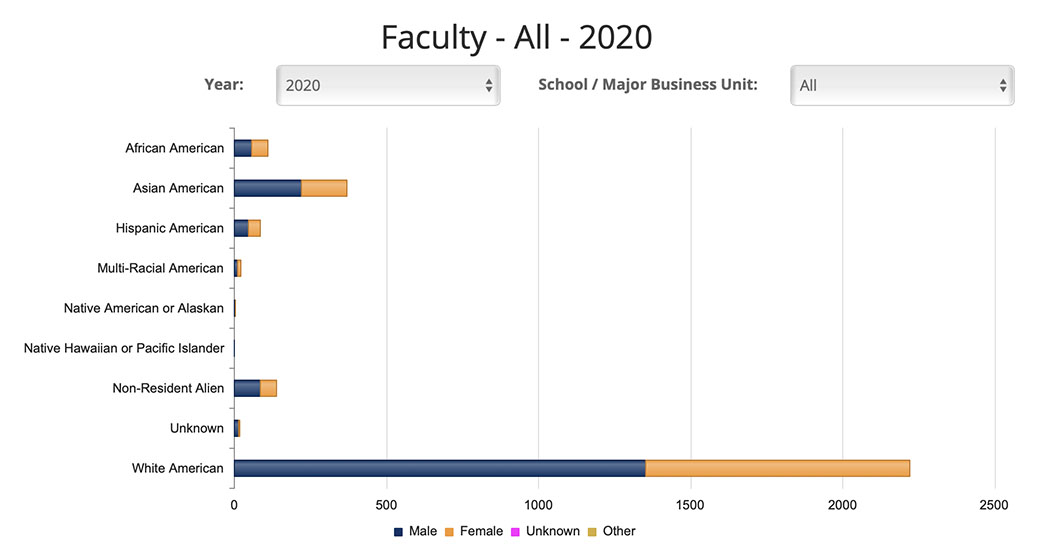By Amelia Delphos
Last week, Pulitzer Prize-winning journalist Nikole Hannah-Jones was denied the position of the Knight Chair in Race and Investigative Journalism at the University of North Carolina’s Hussman School of Journalism. The tenured position seemed like a natural fit for Hannah-Jones, a UNC alum and one of the developers of the 1619 Project for The New York Times. Despite her backing by the university’s dean, chancellor, and faculty, UNC’s Board of Trustees decided to offer Hannah-Jones a five-year, non-tenured appointment following public and private outcries from conservatives.
Supporters of Hannah-Jones have been quick to point out the racism that appeared to be at play in her tenure denial. All previous Knight Chairs had been offered tenure, and all previous Knight Chairs were white.
Tenure denial to Black and Brown faculty is not unique to the University of North Carolina. In the Spring of 2020, 38 percent of UVA faculty participated in an inter-university research study “dedicated to improving outcomes in faculty recruitment, development, and retention.” Among underrepresented minority faculty, tenure policies and tenure expectations clarity were ranked as weaknesses of working at UVA.
Then, in the summer of 2020, the university made national headlines. Paul Harris, a former professor in UVA’s School of Education, was denied tenure after five years in the department by an all-white review board. He appealed his tenure denial to the provost’s office and, after a months-long process and national attention, the university reversed the decision.
The appeal took a toll on the Harris family. “Just the amount of time that it took us,” says Harris. “There was a lot of time and energy and emotional currency that we had to expend unnecessarily.”
This month, Harris decided to leave the university for a position at Penn State’s College of Education.
According to Harris, Penn State was an appealing university. “Dean Kimberly Lawless’ vision at the College of Education is one of building an anti-racist culture, and my work situates incredibly well within that larger vision and scope,” he says. “I felt confident that my work would be valued here and that I could add value to what’s happening.”
“This isn’t just UVA,” Harris says. “This is at many institutions across the country. There can be a reckoning with how structures and systems and policies in place perpetuate the status quo that privilege whiteness and marginalize racial minorities, particularly Black and Brown faculty.”
Since 1987, UVA or UVA-affiliated groups have released over 15 reports detailing the university’s shortcomings when it comes to racial equity. In 2020, as protests erupted around the country in the aftermath of the murder of George Floyd, UVA President Jim Ryan appointed a new Racial Equity Task Force to address racial equity concerns at the university.
“We were in this particular moment in time in our country in which a number of things felt different,” says Kevin McDonald, a member of the task force and UVA’s vice president for diversity, equity, and inclusion. “But there was definitely a level of racial reckoning and reflection, both personally and organizationally, that made our efforts feel a bit different.”
In addition to McDonald, the task force, which released its findings in the August 2020 Audacious Future Report, is made up of Ian Solomon, dean of the Frank Batten School for Public Policy and Leadership, and Barbara Brown-Wilson, assistant professor of urban and environmental planning and co-founder and faculty director of UVA’s Equity Center. The report outlined new goals for underrepresented faculty recruitment, promotion, and retention.
The first recommendation—which has been completed—was to endow the Carter G. Woodson Institute for African-American and African Studies. Most of the money from the endowment will go toward the hiring of new faculty and postdoctoral fellows for the institute.
The task force also recommended doubling the number of underrepresented faculty at UVA by 2030. Although this recommendation has yet to be completed, the university is making strides to meet this goal. A $5 million grant from the Mellon Foundation is dedicated to the growth of racial equity programs, funding post-doctoral fellowships, and supporting faculty teaching and research focused on racial equity. Additionally, the money will be used to build faculty and curriculum around the subject of race, place, and equity. The grant will allow the College of Arts and Sciences to hire more faculty, especially minority faculty.
“We anticipate that these openings, all focused on race and equity, will attract and sustain a strong community of BIPOC scholars and teachers who can contribute to real, lasting transformation at UVA,” said a UVA spokesman in a statement.
“We continue to unapologetically recognize the value of diversity, equity, and inclusion,” says McDonald. “There’s an intentionality to our work. We want our equity walk to match our equity talk.”
